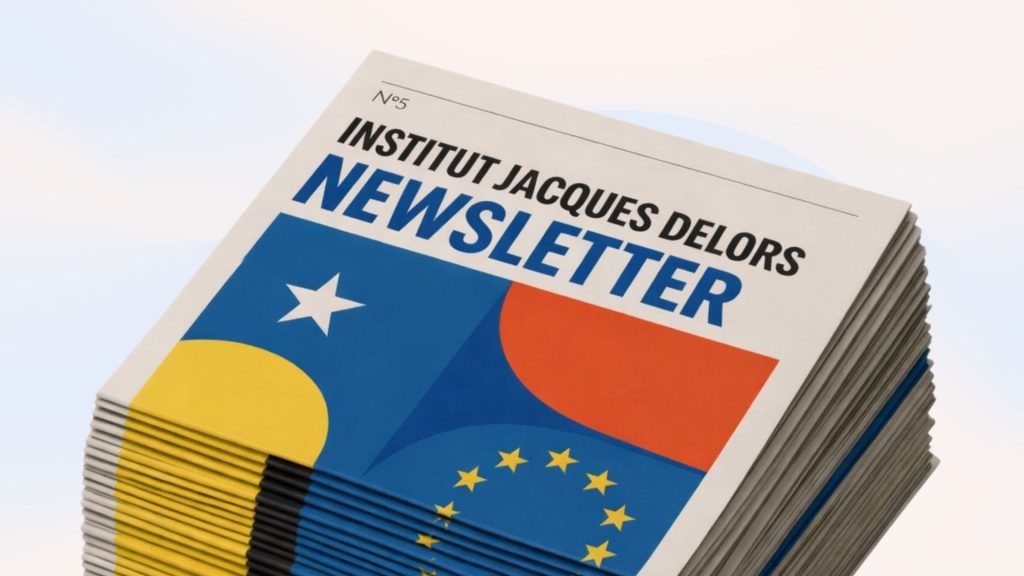Towards COP30: Europe, between lucidity and responsibility
Newsletter november 2025

With COP30 set to open in a few days in Belém, Brazil, the climate debate seems caught in a strange duality: an increasingly acute collective awareness of the urgency, and a sense of growing political weariness with the transition it requires. Yet the figures and facts are worth remembering: the world is moving forward — slowly, imperfectly, but in the right direction.
In 2015, at the time of the Paris Agreement, global emissions were on track to cause warming of more than 4.5°C. Today, according to the latest aggregate assessments of national contributions, that trajectory is around 2.5°C. This is still too much, but it is a colossal improvement over the course of a decade. Climate policy, long considered ineffective, is now producing measurable results. Paradoxically, this message is rarely relayed: the dominant narrative remains one of failure, when we should also be highlighting the dynamics of transformation at work.
In this respect, Europe continues to play a leading role. But it has not been spared by the crisis of confidence. According to the European Environment Agency, the continent is warming nearly twice as fast as the global average. It is therefore essential to continue to take action, and even to accelerate it: living, working and ageing in a European climate that is 3°C warmer is not an enviable prospect for anyone. The issue is therefore no longer a moral one, but a strategic one: the transition we choose will determine the economic and social future of our continent’s current youth, our children, our grandchildren… The challenge is clear: to reconcile environmental urgency with everyday reality, to balance the end of the month with the end of the world by putting people back at the centre of the equation, but also by inventing instruments that can reconcile European and climate challenges. This is the proposal made by our colleagues in Berlin, Nils Redeker, Sander Tordoir and Lucas Guttenberg, in their policy brief on How can buy-European rules help save Europe’s car industry?.
The European Union, a pioneer of the Green Deal, is now at a crossroads. The multiannual financial framework presented by the Commission in July could lead to a decline in environmental objectives: the new CAP proposal, as feared by Sophia Caiati of Europe Jacques Delors. Similarly, the infographic proposed by Phuc-Vinh Nguyen on the overhaul of the carbon market, “ETS2 – Fuel for the yellow vests or driver of the green transition? “, sheds light on the issue. In their recent European Council conclusions, Member States have also expressed their concerns about the potential social impact of this new instrument. However, it is by intelligently mobilising carbon revenues — to finance energy renovation, support households and promote innovation — that the EU will be able to show that ecology and competitiveness can go hand in hand.
Behind the technical debates lies the issue of global leadership. When the United States temporarily withdrew from the Paris Agreement for the first time in 2018, Europe was able to stay the course and maintain collective momentum. Today, this role has been weakened: procrastination on the 2050 trajectory, slow internal negotiations and fear of climate unpopularity are weakening the signal sent to the international community. Without Europe, however, global ambition is diluted, and China, lying in wait, is imposing its own energy and technology standards.
In Belém and beyond, Europe’s responsibility is therefore not only environmental: it is political. It consists of proving that a democracy can lead the transition without sacrificing social justice or growth, supporting this transition wherever necessary, in Europe and the rest of the world, and rallying all those of good will around the Brazilian president at the helm here and beyond. In a world where multilateralism is becoming an increasingly abstract concept, the success of COP30 will depend largely on the ability of Europeans to stay the course – with realism, but without giving up. The good news is that citizens still believe in it. It is up to us, collectively, to give them reasons to hope.
Enjoy reading our November newsletter. You will also find Bertrand de Cordoue’s blog post on ‘The digital divide in armaments: an opportunity for Europe?’ and Jules Bigot’s analysis of ‘From Budapest to Minsk: lessons to be learned from negotiations with Russia’.

